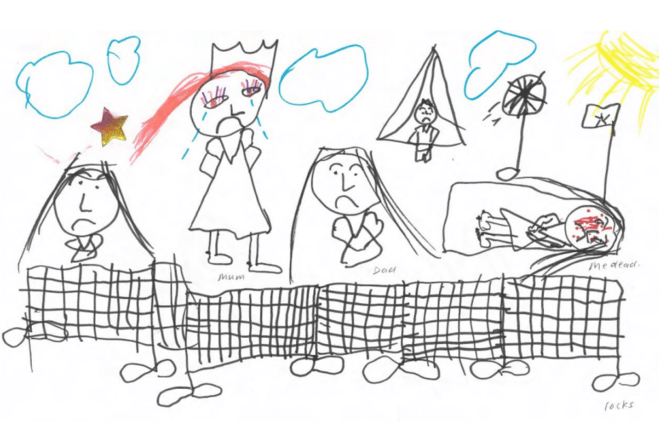The Australian Labor Party’s election promise to work out with the early childhood sector how they can facilitate a 20 percent wage increase over eight years is a bold and very welcome move that will generate far more economic benefits than the temporary adjustment costs, writes Early Childhood Australia CEO SAMANTHA PAGE. The early childhood profession has made huge strides in encompassing the growth in knowledge about the importance of supporting children’s development in the early years. Yet their salaries still reflect the historically low value placed on this profession.

Childcare, or early childhood education, is a significant sector in Australia. There are approximately 194 000 people working for more than 15,000 licensed employers, providing education and care to 1.2 million children a year. The sector is equal in size to industry sectors such as mining or telecommunications, but not as well understood.
While annual turnover is likely to exceed $10 billion in 2019–20, the revenue comes from just two sources: public funding from the federal government, in the form of an estimated $8.3 billion in childcare subsidy payments; and private funding in the form of fees paid by families.
Historically, the work of early childhood educators has been undervalued. Professionals working with young children since the 1930s have struggled with the perception and misunderstanding that they are merely babysitting young children to allow parents to work. Pay rates for qualified teachers working in early education settings are well below parity with other parts of the education sector.
Degree-qualified early education teachers working in long day care centres are particularly disadvantaged—taking home up to $13 000 a year less than they would if they worked in a school. Early childhood educators are paid as little as $22 an hour which is almost half the national average wage. This is despite there being mandatory qualifications (Cert III, Diploma or Degree), a National Quality Framework and a well-established code of ethics—all the requisite components to be recognised as a “profession”. There is no rationale for this aside from historical (gendered) bias.
Early childhood educators are responsible for the experiences of children when their brains are developing at the most rapid rate (80 per cent of neurological development happens before the age of three). There is a solid research base that proves high-quality early education sets children up for lifelong learning and social-emotional wellbeing. Children who receive two years of quality preschool are more likely to make a successful transition to school, complete their education and go onto tertiary or vocational study.
The return on investment from early childhood education subsidies is one of the highest returns from any form of investment in education or social services. A PwC report submitted to the Productivity Commission in 2015 found that if all children participated in quality early learning, economic benefits equalling $10 billion would be added to the nation’s GDP, cumulative to 2050.
This level of economic return can only be realised if the services are of high quality and available to all children, particularly those at risk of educational disadvantage. To deliver on this, we need a capable, qualified and stable workforce. The wage rates are too low and turnover is too high because trained early childhood educators can earn more money working in retail or hospitality. There is a national workforce shortage reaching crisis point, but there is no point training more educators if they don’t stay in the sector. There is a strong consensus amongst policy experts, quality regulators, employers (large and small alike) on the need to address workforce issues in early childhood education. The question has been how to achieve this without increasing the cost to families.
The Australian Labor Party has announced that, if elected, it will deliver a 20 per cent pay increase to early childhood educators, fully subsidised by government. That is a good solution. This will prevent cost increases to families, while delivering a one-off structural adjustment to wage rates that is desperately needed. We have seen similar adjustments in the past for sectors such as nursing, teaching and social services.
The concerns raised by some business leaders that this might open the floodgates for unions demanding pay increases or undermine Australia’s industrial relations process and the work of the Fair Work Commission are misplaced. The early childhood sector is a unique example of the need to invest in wage increases to secure long-term educational benefits for children, and ensure that families can engage in work when they need to. The cost of inaction is potentially much higher.
This article was first published in the Sydney Morning Herald. Read the original here.











I am not so happy to receive a politically biased article through The Spoke, prior to a Federal Election.
I usually look forward to reading your articles for their educational value.
Thank you for the feedback Sandy, this piece is written by our CEO Samantha Page. We welcome all views from our readers on The Spoke.
Sandy, the reality is we are undervalued and underpaid in what is now a profession with complex requirements and responsibilities. I have done post graduate studies and they are not even recognised within our pay levels. So I think this article is truly addressing an important issue that requires commitment from all parties.
Thank you Stella for your comments. I agree that early childhood educators are underpaid and undervalued. The situation is all to often exacerbated by mediocre working conditions. Subsequent high staff turnover creates a perpetual set of problems which impacts the quality of children’s care and education.
This is an ongoing problem that must be addressed. When you can earn more money stacking shelves at Coles, why would you choose to be an Early childhood educator with all the responsibilities that brings,but offers you less pay than a shelf stacker! If government truly believes that Early Childhood Education is key to children’s future success, let them put their money where their mouth is and do something to change this!
And that’s the reality of it. Even in 2021, the conditions are still the same, and due to the pandemic and mandatory Covid vaccination for the place I work at, combined with everything educators have to deal with – increasing workload, an overabundance of paperwork (which includes observations, critical reflections, weekly reflections, writing up the program, daily checklists, summative assessments, daily story, etc) How do people expect educators to do all this AND provide quality care to children? On top of that laughably low pay? I would love to see a change come about. Oftentimes educators love spending time with children, that’s why they are there. But people are leaving due to everything else! We are losing amazing educators, something needs to be done! Unfortunately, I understand that this issue has been ongoing since ages ago, and it only gets worse each year. Sorry to sound like a negative nancy, but the early childhood sector is not a happy walk in the park. We deserve better.